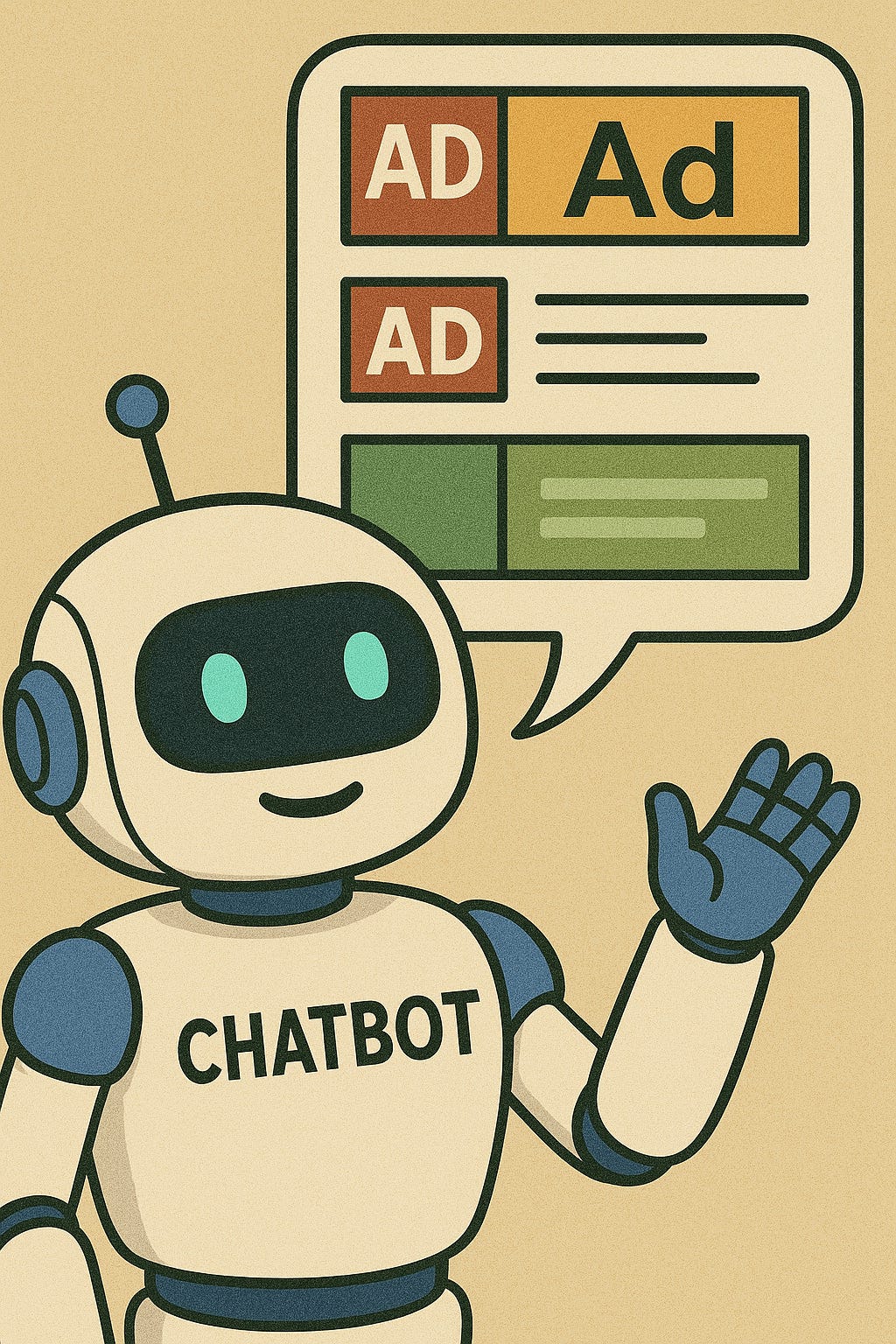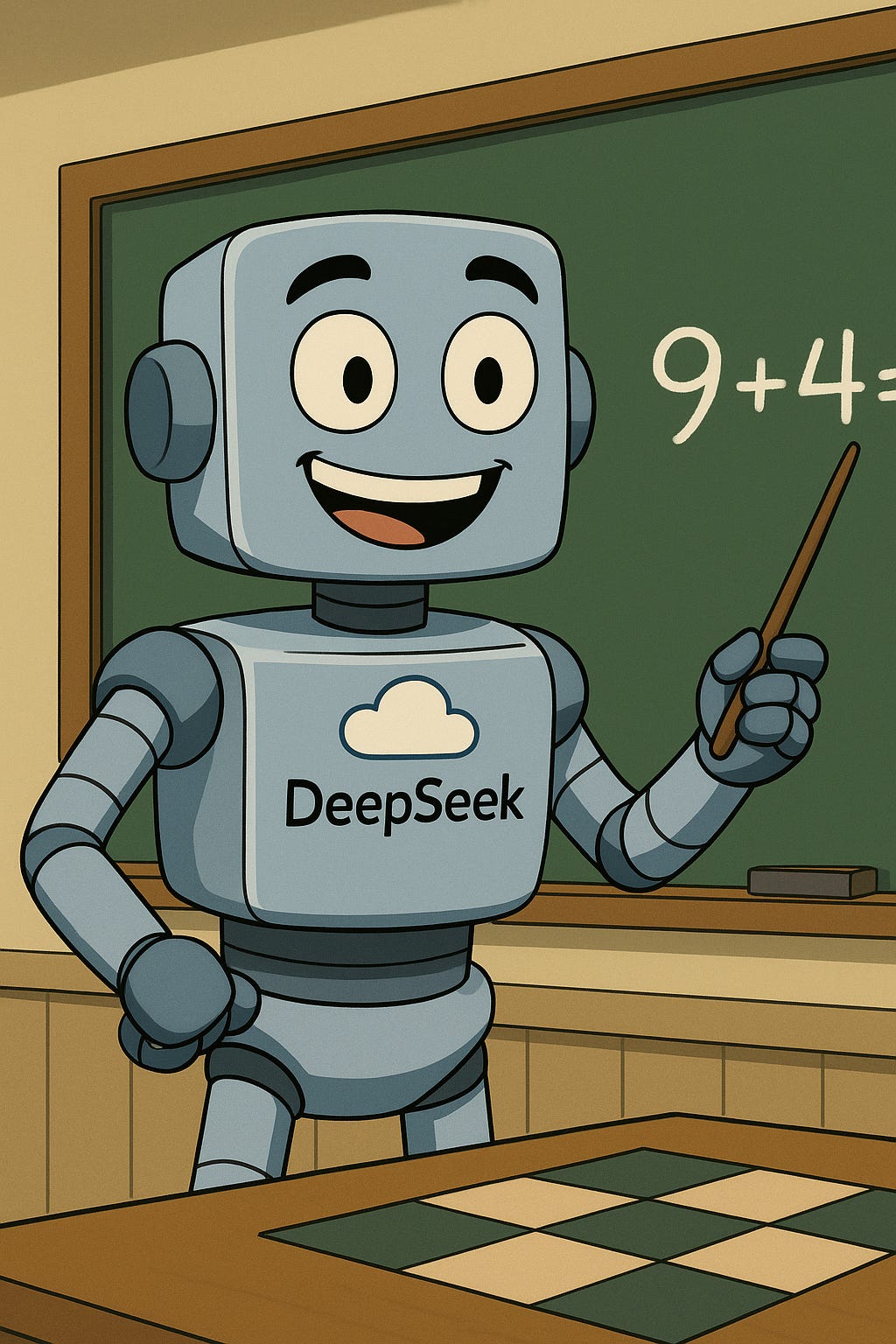Google Integrates Ads into Third-Party AI Chatbot Conversations
PLUS: AI-Powered Alpha School Redefines Education with Two-Hour Learning Model
Top AI News, Trending AI Tools, and AI Business Tips
Sponsored by Extendly - Launch your own AI Agency within 12 days 👀
Google Integrates Ads into Third-Party AI Chatbot Conversations
Google has begun embedding advertisements within user interactions on select third-party AI chatbots through its AdSense network, according to a Bloomberg report. The initiative, which started earlier in 2025, follows successful trials with AI search startups iAsk and Liner.
A Google spokesperson noted that “AdSense for Search is available for websites that want to show relevant ads in their conversational AI experiences,” signaling an effort to monetize the growing use of AI chatbots like ChatGPT, Claude, and Perplexity, which are increasingly used for web searches and queries.
This move reflects Google’s strategy to maintain its dominance in digital advertising—generating $175 billion annually—while countering the rise of AI-driven alternatives that threaten traditional search models.
By integrating ads into chatbot conversations, Google aims to capitalize on the shift toward AI-powered interactions, though it risks alienating users who value uninterrupted experiences. Some users are criticizing the potential disruption to seamless AI interactions and others seeing it as an inevitable step in the evolving AI landscape.
Use Extendly to launch a new AI agency with a 12 day bootcamp. Includes webinars, group onboarding calls, implementation sessions, and more. Click HERE to learn more!
AI-Powered Alpha School Redefines Education with Two-Hour Learning Model
At Alpha School in Brownsville, Texas, a private pre-K through eighth-grade institution, artificial intelligence is transforming education by delivering a full day’s core academic lessons in just two hours. Located on a sunlit street near the Mexican border, the school replaces traditional teachers with AI tutors, enabling students to learn at their own pace through personalized, mastery-based instruction. Afternoons are dedicated to life skills workshops, such as public speaking, financial literacy, and even bike riding, fostering creativity and practical abilities.
Students at Alpha exhibit remarkable enthusiasm for learning, with campus lead Mo Swain noting their “intrinsic motivation.” Early data is promising: co-founder Mackenzie Price reported to Fox News that Alpha students rank in the top 2% of national test scores, surpassing common core benchmarks. The school’s model, which began in Austin and expanded to Brownsville in 2022, is now the network’s fastest-growing campus, with plans for further expansion in Houston, Miami, and beyond. Priced at $10,000 annually in Brownsville—significantly lower than the $40,000 at other campuses—Alpha aims to make its innovative approach accessible.
Critics question whether AI-driven education can fully replace human teachers, citing concerns about social development and over-reliance on technology. However, Alpha’s philosophy emphasizes creating a love for learning, with students like Sarah, who works late into the evening to master concepts, showcasing the model’s impact. As Alpha continues to scale, it challenges conventional education, proving that AI can accelerate learning while freeing time for real-world skills.
Watch AI voice demo calls to learn how to sell AI phone solutions to business owners. Get access to prompts and AI voice SAAS agency snapshot.
Click HERE to watch today!
Other Top AI News Today
xAI’s Grok 3 Enhances Reasoning with New Features: xAI announced updates to Grok 3, including improved reasoning capabilities and expanded access to its DeepSearch mode, which iteratively analyzes web data for more accurate responses. These enhancements solidify Grok 3’s position as a leading AI tool for research and real-time information processing, with growing adoption across platforms like x.com and the Grok mobile apps.
U.S. Stock Markets React to AI Developments Amid Tariff Concerns: AI-related stocks, including Microsoft and Nvidia, saw gains as strong AI advancements countered fears sparked by President Trump’s tariff policies. The Nasdaq Composite recovered to near its April 1 levels, reflecting investor confidence in AI-driven growth despite economic uncertainties.
OpenLedger and SpaceLabs Pioneer Decentralized AI Infrastructure: OpenLedger, in partnership with SpaceLabs, is trending for its blockchain-based AI ecosystem, emphasizing transparency, decentralized ownership, and fair compensation for data contributors. This initiative aims to democratize AI development, challenging centralized corporate control.
Nvidia Faces Competition from Huawei’s AI Chip: Nvidia’s stock dipped following reports that Huawei is preparing to test its Ascend 910D AI chip, designed to rival Nvidia’s H100. This development, amid U.S. export bans, highlights China’s push to close the AI technology gap, with Nvidia’s CEO acknowledging the competitive shift.
Alibaba’s Qwen3 LLM Strengthens China’s Open-Source AI Leadership: Alibaba launched Qwen3, its next-generation open-source large language model, touted as a global leader among open-source models. With enhanced reasoning and multilingual capabilities, Qwen3 underscores China’s growing influence in AI, though it trails proprietary models like OpenAI’s o3.
Want to grow your Linkedin network to get more clients? Use HeyReach for automated Linkedin outreach campaigns. Click HERE for a FREE trial today!
Trending AI Tools Today
Postiz is your ultimate AI social media scheduling tool, 20+ available socials! Plus: MCPs, auto-reposts, repeated posts, AI agents, quick image generation, and auto short-linking.
Raycast for iOS is your all-in-one productivity toolkit with AI, Notes, and more – now on mobile as the perfect companion to the macOS app. It seamlessly extends your desktop workflow to mobile, ensuring you stay productive wherever life takes you.
LLMrefs helps you increase your brand’s visibility in AI search. Track keyword rankings and optimize your brand's AI SEO performance in ChatGPT, Gemini, Perplexity & more.
Omi connects ChatGPT to your Gmail, Google Calendar, Notion, LinkedIn, X + 100 apps and let it send emails, work on your Notion, update your calendar and much more
Vibesuite lets you supercharge your vibe coding workflow. Stay in flow and build 3× faster on v0, Lovable, and more. Gives you instant notifications, sound alerts, and automatic tab switching—so you can prompt, code, and ship without distractions.
Run cold email campaigns using Instantly and get more booked meetings for your business. Includes AI email warmups and verified B2B leads database.
Click HERE to get a FREE trial today!
Business Tip of the Day
AI Course Creator : How to Use AI to Create Business Courses
In today’s fast-paced business landscape, staying ahead means equipping your team, clients, or customers with the knowledge and skills they need to thrive. But creating high-quality training courses can be time-consuming and resource-intensive—unless you harness the power of artificial intelligence (AI). By leveraging AI tools, businesses can develop engaging, personalized, and scalable courses that drive results without breaking the bank. Here’s how to use AI to transform your business’s training and education programs, along with practical tips to get started.
Why AI for Course Creation?
AI is revolutionizing how businesses approach training. From automating content creation to delivering personalized learning experiences, AI offers several advantages:
Speed and Efficiency: AI can generate course frameworks, quizzes, and visuals in minutes, reducing development time.
Personalization: AI tailors content to individual learners’ needs, ensuring better engagement and retention.
Scalability: Once created, AI-powered courses can be deployed to thousands of users with minimal additional effort.
Cost Savings: By streamlining processes, AI reduces the need for expensive instructional designers or lengthy production cycles.
Data-Driven Insights: AI analytics provide real-time feedback on learner progress, allowing continuous improvement.
Whether you’re training employees on new software, educating clients about your product, or offering customer-facing courses as a revenue stream, AI makes it easier to deliver high-quality learning experiences. Let’s dive into a step-by-step guide to using AI for course creation.
Step 1: Choose the Right AI Tools for Course Development
The first step is selecting AI-powered tools that align with your business’s needs. Here are some top options:
Course-Building Platforms: Platforms like Thinkific or Teachable integrate AI features to generate course outlines, suggest content, and organize lessons. Articulate 360 uses AI to create interactive e-learning modules with minimal effort.
Content Generation Tools: Tools like Jasper AI or Copy.ai can draft lesson scripts, quizzes, and summaries based on your input, ensuring professional-grade content.
Design Tools: AI-driven platforms like Canva or Adobe Express help create branded visuals, slideshows, and infographics to enhance your course’s appeal.
Chatbot Integration: AI chatbots, such as ChatGPT or xAI’s Grok, can be embedded to provide real-time Q&A, personalized feedback, or guided learning paths.
Pro Tip: Start with a platform that offers a free trial to test its AI capabilities. For example, Thinkific’s AI course builder lets you input a topic and generates a draft curriculum in seconds.
Step 2: Input Existing Content for a Head Start
You don’t need to start from scratch. Gather your business’s existing materials—training manuals, FAQs, product guides, blog posts, or videos—and feed them into your chosen AI tool. For instance:
Upload a PDF manual to an AI platform like Articulate Rise, and it will suggest a course structure with modules, quizzes, and interactive elements.
Use Jasper AI to summarize lengthy documents into concise lesson scripts.
Input customer support queries into Grok to create a FAQ-based course for clients.
This approach not only saves time but also ensures your course reflects your business’s expertise and voice. Once the AI generates a draft, review and refine it to align with your goals.
Step 3: Personalize and Brand Your Course
AI excels at customization, allowing you to create courses that resonate with your audience. Here’s how:
Tailor Content: Use AI to adapt lessons for different learner levels. For example, Coursera for Business uses AI to recommend content based on learners’ roles or skill gaps.
Add Interactivity: Integrate AI chatbots to answer questions or provide real-time feedback. For instance, xAI’s Grok can be customized to guide learners through complex topics, simulating a one-on-one tutor experience.
Brand Consistency: Use AI design tools like Canva to create visuals that match your brand’s colors, fonts, and logo. This ensures a professional, cohesive look across your course.
Pro Tip: Test your course with a small group to ensure the AI-driven personalization meets learners’ needs. Adjust based on feedback before scaling.
Step 4: Enhance Engagement with AI-Powered Features
Engagement is key to effective learning. AI can make your courses interactive and dynamic:
Adaptive Learning Paths: Platforms like LinkedIn Learning use AI to adjust content based on learners’ progress, ensuring they stay challenged but not overwhelmed.
Gamification: AI tools can add quizzes, badges, or progress trackers to keep learners motivated. Kahoot integrates AI to create fun, interactive assessments.
Conversational AI: Embed a chatbot to simulate discussions or provide instant clarifications. For example, a Grok-powered bot can answer employee questions about a new process in real time.
These features create a more immersive experience, increasing completion rates and knowledge retention.
Step 5: Analyze and Optimize with AI Analytics
Once your course is live, use AI analytics to track performance and identify areas for improvement. Most course platforms offer dashboards that show:
Completion rates and time spent per module.
Quiz scores and areas where learners struggle.
Engagement metrics, such as interaction with chatbots or discussion forums.
For example, Thinkific provides AI-driven insights to highlight which lessons are most effective and where learners drop off. Use this data to refine content, add clarifications, or update outdated material.
Pro Tip: Set up regular review cycles to incorporate new business developments or learner feedback, keeping your course relevant and impactful.
Real-World Examples of AI-Powered Courses
Businesses across industries are already using AI to create transformative training programs:
Tech Companies: Google uses AI to train employees on cloud technologies through interactive, self-paced courses, reducing onboarding time.
E-Commerce: Shopify offers AI-generated courses to educate sellers on marketing strategies, leveraging data from millions of stores.
Small Businesses: A local fitness studio could use AI to create a customer-facing course on nutrition, combining blog content with chatbot-led meal planning.
These examples show how AI democratizes course creation, enabling businesses of all sizes to deliver professional-grade training.
Getting Started: Practical Tips
Ready to create your first AI-powered course? Follow these steps:
Define Your Goal: Decide whether the course is for employee training, client onboarding, or a paid offering.
Choose One Tool: Start with a single platform like Thinkific or Articulate to avoid overwhelm.
Start Small: Create a short course (e.g., 30 minutes) to test the process before scaling.
Leverage Free Resources: Explore free trials or templates from Canva, Jasper, or xAI’s Grok to minimize costs.
Iterate Based on Feedback: Launch to a small group, gather insights, and refine before rolling out widely.
The Future of Business Training Is AI
AI is no longer a futuristic concept—it’s a practical tool that can transform how your business delivers training. By automating content creation, personalizing learning experiences, and providing actionable insights, AI empowers you to create courses that are efficient, engaging, and scalable. Whether you’re upskilling your team or educating your customers, AI-driven courses can set your business apart in a competitive market.
Get an AI team to handle inbound and outbound calls for your business using SumoGrowth. Replaces receptionist, customer service, appointment setters, and more.
Click HERE to book a call today!
Podcast:
Want to listen to our newsletter on the go? Click HERE
Want to advertise to our newsletter? Contact us at hello@sumogrowth.com
Cheers,
Darius @ SumoGrowth




